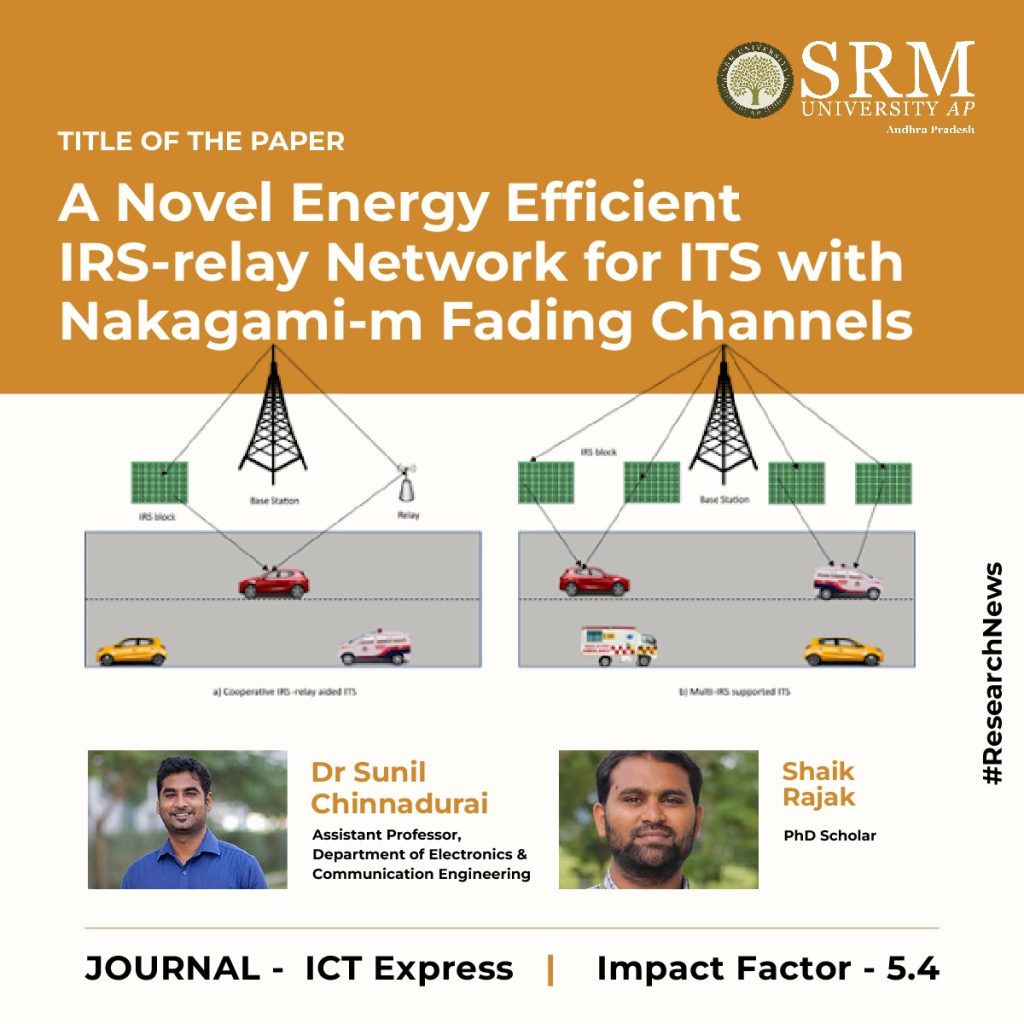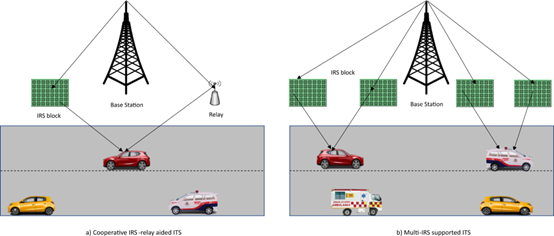
The Department of Electronics and Communication Engineering is proud to announce the publication of a research paper by Dr Sunil Chinnadurai, Assistant Professor and Research scholar Shaik Rajak titled “Novel Energy Efficient IRS-relay Network for ITS with Nakagami-m Fading Channels” in the Q1 journal ICT Express, having an Impact Factor of 5.4. The paper focused on developing an energy-efficient network for ITS that utilises Nakagami-m fading channels to improve communication reliability and efficiency.
In this work, the research duo introduced a cooperative system involving relay technology and an IRS (Intelligent Reflective Surface) with passive elements. Evaluating energy efficiency and achievable rates, they found that the cooperative relay-IRS system outperformed individual relay and IRS setups. The study also compared multi-IRS setups, highlighting their effectiveness in reducing power consumption and deployment costs for improved ITS development.
Abstract
The research paper investigates the performance of energy efficiency (EE) for Intelligent Transportation Systems (ITS) using a cooperative IRS-relay network. The proposed cooperative IRS-relay-aided ITS network integrates an IRS block with a number of passive reflective elements to improve EE. The research analyses the ITS in terms of EE and achievable rate under Nakagami-m fading channel conditions. The research aims to reduce power consumption over long distances and operate the system faster and safer.
Practical implementation/ social implications of the research
The proposed cooperative IRS-relay network for Intelligent Transportation Systems (ITS) has practical implications for improving energy efficiency and achieving higher data rates in ITS networks. Integrating an IRS block with passive reflective elements in the relay model enhances the coverage area and reduces power consumption in ITS. The research highlights the significance of cooperative IRS-relay and multi-IRS-aided networks in the development of ITS, which can contribute to safer and faster transportation.

Dr Chinnadurai and Mr Rajak Future will continue to work on their research focusing on optimizing the design of the cooperative IRS-relay network for ITS to improve energy efficiency and achievable data rates further in real-world scenarios.

